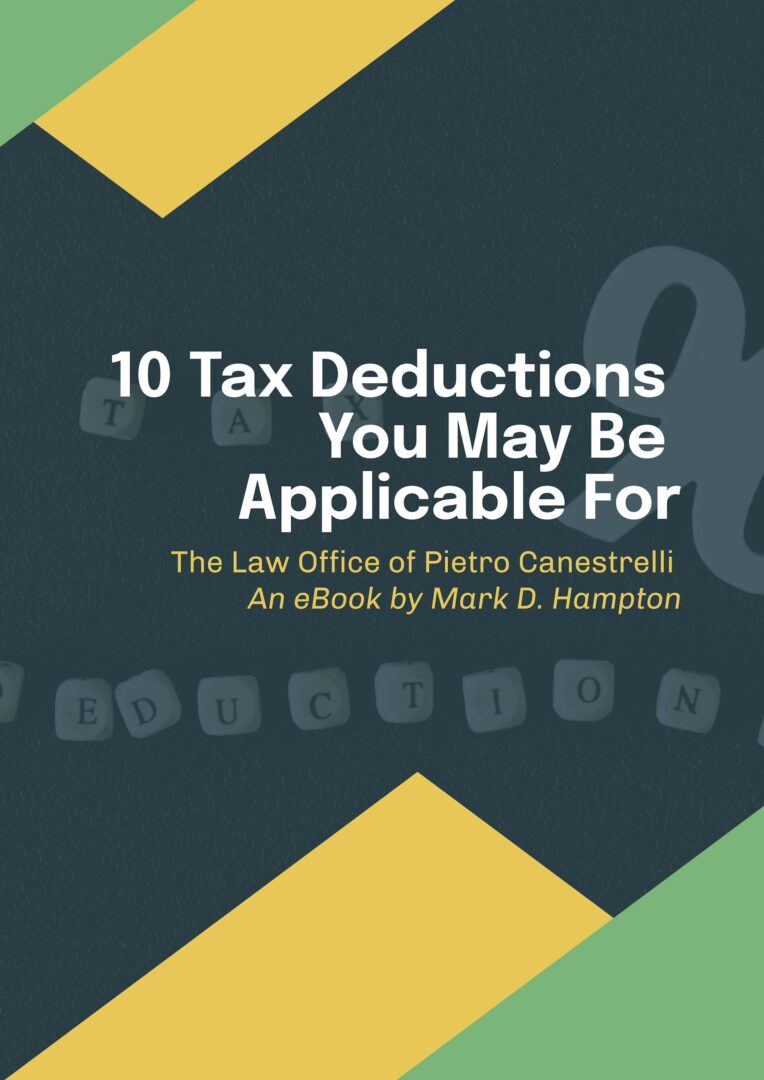In today’s gig economy, many people are running side hustles or full-time self-employment ventures. But with that additional income comes the responsibility of handling taxes, and, fortunately, a variety of tax deductions are available to offset these new costs. Knowing what expenses you can deduct can help you maximize your tax savings and reduce your taxable income.
This guide will walk you through common tax deductions for side hustles and self-employed workers, how to claim them, and tips for keeping accurate records.
- The Home Office Deduction
If you use part of your home exclusively for your business, you may be eligible for the home office deduction, which allows you to deduct a portion of your housing expenses based on the size of your workspace.
How It Works:
- Simplified Method: You can deduct $5 per square foot of your home office, up to a maximum of 300 square feet, for a deduction of up to $1,500.
- Actual Expense Method: This method requires you to calculate your home office’s percentage of your total home space and apply it to your rent, mortgage interest, utilities, and other home expenses. This method generally yields a higher deduction but requires more documentation.
Eligibility: Your home office must be used exclusively and regularly for business purposes.
- Business Supplies and Equipment
From notepads to laptops, any supplies or equipment you use exclusively for your business can be deducted as a business expense. Larger equipment, like computers and cameras, may need to be depreciated over time, but the IRS’s Section 179 allows many small business owners to deduct the full cost in the year the item is purchased.
Examples of Deductible Items:
- Computers, phones, and software
- Office supplies such as paper, pens, and postage
- Specialized tools related to your business, such as cameras for a photographer
Record-Keeping: Keep receipts for all supplies and equipment purchases, as these expenses are often scrutinized by the IRS.
- Internet and Phone Expenses
If you use your personal phone or internet for business purposes, you can deduct a percentage of the cost. You’ll need to determine how much of each bill is related to business use versus personal use.
How to Calculate:
- Estimate the percentage of time you use your phone and internet for business purposes. For instance, if you use your internet 50% for business, you can deduct half of your monthly internet costs.
Record-Keeping: Document your business use through call logs, project timelines, or any other records that support your deduction percentage.
- Vehicle Expenses and Mileage
For side hustles that require a lot of driving, like delivery services or consulting, vehicle expenses can add up. The IRS offers two methods to deduct vehicle costs:
- Standard Mileage Deduction: For 2023, you can deduct 65.5 cents per mile driven for business purposes.
- Actual Expense Method: This method allows you to calculate the exact cost of vehicle expenses like gas, maintenance, repairs, insurance, and depreciation, then deduct the business portion of these expenses.
Eligibility: Only business-related mileage counts, not personal or commuting mileage.
Record-Keeping: Keep a mileage log or use a mileage tracking app to record the date, purpose, and miles driven for each trip. The IRS requires this documentation to substantiate vehicle deductions.
- Marketing and Advertising Expenses
Promoting your business is essential, and these costs are fully deductible. Common marketing and advertising expenses include:
- Website hosting and design
- Business cards, flyers, or online ads
- Social media promotions and advertising
- Sponsorships or promotional giveaways
Record-Keeping: Maintain invoices, receipts, and contracts related to your marketing expenses. Even small advertising costs, like boosting a post on social media, can add up over time.
- Professional Services and Software
If you hire professionals to assist with your business, such as accountants, lawyers, or consultants, their fees are deductible as business expenses. Additionally, many side hustles require specialized software and subscriptions, which are also deductible.
Examples of Deductible Services and Software:
- Accounting and bookkeeping software
- Legal services and consulting fees
- Project management tools and CRM software
- Industry-specific tools like design or editing software
Record-Keeping: Save invoices and payment records from service providers, as well as receipts for software purchases or subscription confirmations.
- Education and Training Expenses
If you invest in courses, certifications, or training to improve your skills for your side hustle or self-employment, these costs may be deductible. The IRS allows deductions for education that helps maintain or improve the skills needed in your current business.
Examples:
- Online courses related to your profession
- Certification fees (e.g., real estate license renewal)
- Books, webinars, or seminars specific to your industry
Record-Keeping: Save receipts for all educational expenses, as well as any records demonstrating the relevance of the training to your business.
- Meals and Entertainment
Business meals can be partially deductible if they are necessary for conducting business, such as client meetings or networking events. In general, you can deduct 50% of the cost of business meals, as long as they aren’t overly lavish.
Deduction Requirements:
- The meal must be directly related to your business, and you must be present.
- Keep a record of who was present, the purpose of the meal, and the amount spent.
Record-Keeping: Save receipts, and make note of the business purpose and attendees for each meal to substantiate your deduction.
- Travel Expenses
If you travel for business purposes, many related expenses are deductible, including airfare, lodging, rental cars, and even tips for service providers. Just make sure the primary purpose of the trip is business-related.
Examples of Deductible Travel Expenses:
- Transportation costs (flights, rental cars, public transit)
- Lodging and accommodations
- Business-related meals (50% deductible)
Record-Keeping: Keep all receipts and detailed records of your travel itinerary, showing the business purpose and dates of travel. Personal expenses incurred on the trip are not deductible.
- Self-Employment Tax Deduction
Self-employed individuals are responsible for both the employee and employer portions of Social Security and Medicare taxes. This self-employment tax can be significant, but the IRS allows you to deduct the employer portion (50%) from your taxable income.
How It Works:
- Calculate your self-employment tax on Schedule SE. The employer-equivalent portion can then be deducted on Form 1040.
Additional Tax Credits: Many self-employed workers are eligible for additional credits, such as the Earned Income Tax Credit or the Saver’s Credit. These credits can further reduce your tax bill.
Tips for Staying Organized and Filing Self-Employment Taxes
Filing taxes as a self-employed person or side hustler can be more complex than for a W-2 employee, so here are some tips for staying organized:
- Use Accounting Software: Software like QuickBooks or FreshBooks can help track income and expenses, making it easier to calculate deductions.
- Set Aside Taxes Quarterly: Self-employed workers should pay estimated taxes quarterly to avoid penalties. Set aside a portion of your income each month for tax purposes.
- Maintain a Separate Bank Account: Keeping business income and expenses separate from personal finances simplifies tax filing and makes it easier to track deductible expenses.
Conclusion: Reduce Your Taxable Income with Self-Employment Deductions
If you’re a side hustler or self-employed, understanding and claiming these tax deductions can make a big difference in your overall tax bill. From home office deductions and travel expenses to software and training, there are numerous ways to reduce your taxable income.
As tax laws evolve and the gig economy grows, staying informed about eligible deductions is essential. For more complex situations, consider consulting a tax professional to ensure compliance and maximize your tax savings. With good record-keeping and strategic planning, you can keep more of what you earn from your side hustle or self-employment ventures.





